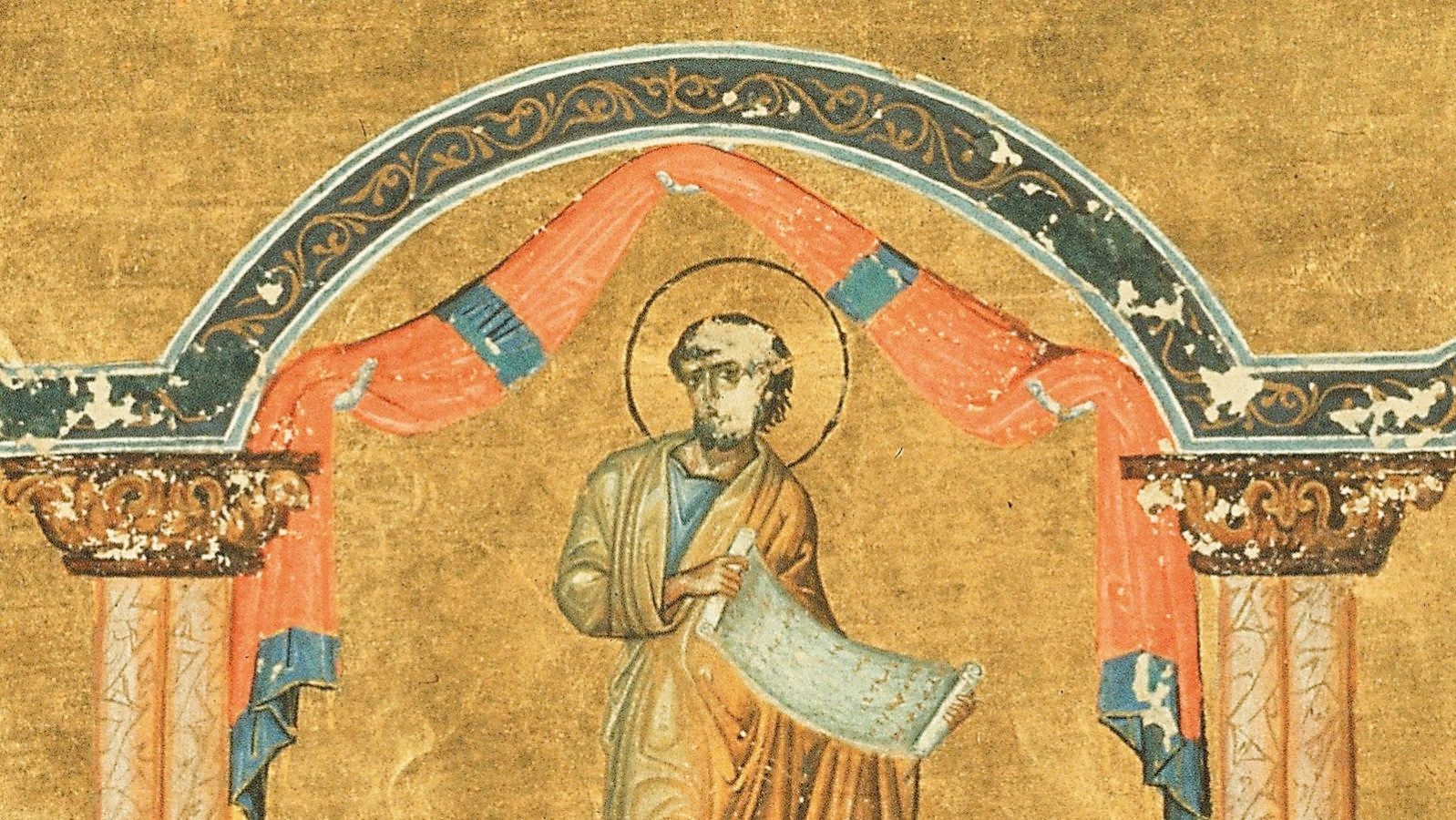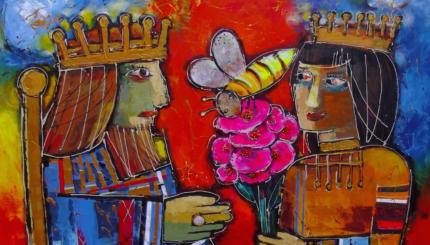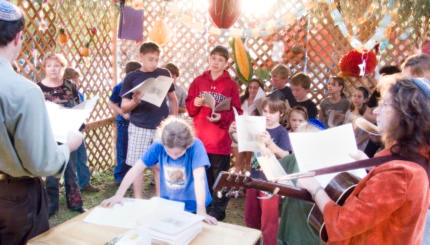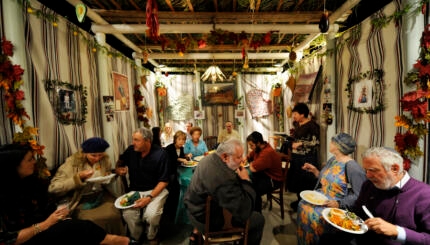Recitation of Zechariah 14 on the first day of Sukkot is ordained in [the Talmud,] Megillah 31a, though the reading may originally have extended only through verse 19 (as attested by the Machzor Romania which preserves old customs of Eretz Yisra’el [the land of Israel]). Present custom is to conclude the Haftarah with verse 21 (mentioning the sacred vessels and the end of foreign traffickers in the Temple).
Rashi comments that this reading was selected because “it is written in it ‘to celebrate the festival of Sukkot'” (verses 18-19)–Israelites and all the nations alike. The prophet thus envisages a universal pilgrimage to Jerusalem. It is a practical consequence of his prophecy of a universal monotheism. “And the LORD shall be king over all the earth; in that day there shall be one LORD with one name” (verse 9).
The Haftarah shows an old connection between the festival of Sukkot and rituals for rain. The pronouncement “Any of the earth’s communities that does not make the pilgrimage to Jerusalem to bow low to the King LORD of Hosts shall receive no rain” (verse 17) is categorical –excluding only Egypt (a land not dependent upon rainfall), though promising it an appropriate scourge. Rain rituals associated with water libations and the four species taken on Sukkot (Leviticus 23:40) are mentioned separately in such early rabbinic sources as Tosefta Sukkot 3:18 and Talmud, Ta’anit 2b, respectively. Rashi combined them in his comment on Zech. 14:17.
Some of these rituals may derive from early biblical times, but it was only in the course of the Second Temple that they seem to have been integrated into a multilevel service of celebration and supplication. Hopes were intense, for until the rains came, the community’s livelihood and sustenance were held in the balance. “On the festival [of Sukkot the people] are judged in regard to water” (Mishnah, Rosh Hashanah 1:2). The anxiety of this time is poignantly expressed in a practice whereby the people hoped to divine in the last traces of the festival ritual some sign of their physical fate. In a tradition reported by R. Isaac b. Abdimi:
With your help, My Jewish Learning can provide endless opportunities for learning, connection and discovery.
On the night following the last day of the festival [of Sukkot] all [the people] were gazing upon the smoke arising from the pile of wood [on the altar]. If it inclined northward the poor rejoiced and the people of means were sad, because the rains of the coming year would be abundant and their fruits would rot [and they would be sold fast and cheaply]. If it inclined southward, the poor were depressed and the men of means rejoiced, for there would be litte rain that year and the fruit could be preserved. If it inclined eastward, all rejoiced [for there would be an average rain, beneficial for all]; [and] if westward, all were depressed [because the seeds would dry, causing famine]. (Talmud, Yoma 21b)
The seeds of divine blessing thus grow in the natural world. The Haftarah directs attention to this fact and redirects the reader to the physical and spiritual components of life. As natural beings, we eat and walk and labor on the earth, but this naturalness may be transformed by a path of piety focused on the House of the Lord. From this perspective, pilgrimage may be as much an inward movement of the soul as an outward act of the body. The divine kingship of which Zechariah dreamed then begins with a transformation of the heart.
Excerpted from The JPS Bible Commentary: Haftarot. It is reprinted with permission from the Jewish Publication Society.
Rosh Hashanah
Pronounced: roshe hah-SHAH-nah, also roshe ha-shah-NAH, Origin: Hebrew, the Jewish new year.
Sukkot
Pronounced: sue-KOTE, or SOOH-kuss (oo as in book), Origin: Hebrew, a harvest festival in which Jews eat inside temporary huts, falls in the Jewish month of Tishrei, which usually coincides with September or October.
Haftarah
Pronounced: hahf-TOErah or hahf-TOE-ruh, Origin: Hebrew, a selection from one of the biblical books of the Prophets that is read in synagogue immediately following the Torah reading.



